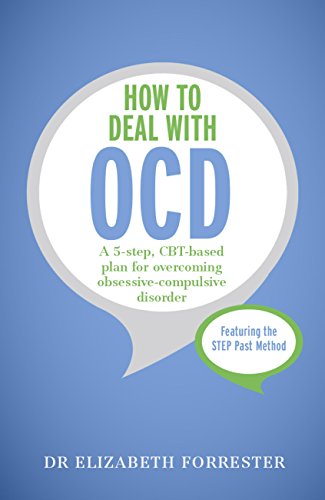How To Identify and Deal With Obsessive Compulsive Disorder
OCD stands for Obsessive Compulsive Disorder, a psychiatric disorder that is characterized by repeated and unwanted compulsive and ritualistic behaviors. These behaviors can include things like thumbing or licking, washing hands repeatedly, writing, counting or even holding an electronic gadget, with the belief that these actions will help eliminate the 'bad' feelings or thoughts associated with it.
Obsessive Compulsive Disorder, OCD (pronounced "oh-sigh-eye-knee-chee"), is not a life-threatening disease and if left alone, can be treated. People suffering from OCD will usually experience a very intense fear of having an attack, often leading them to avoid certain situations and avoid social interaction. The condition is most commonly found among people with OCD, however, there are many sufferers who are asymptomatic.
One of the most common symptoms of OCD is that people will find it very difficult to control their behavior when it comes to specific situations. For example, you may find yourself compulsively counting, as you might not want to miss anything. You may also find that when you are at work, you will find that you can't get to sleep without first cleaning your desk. Some sufferers will even develop rituals around things such as getting up every time they experience a panic attack, or doing rituals every time they have a vision of a cross that they associate with their obsessive behavior. Other rituals will include counting objects like fingers and toes, or even counting objects which are considered "harmless" such as a pencil or pen.
OCD is also characterized by extreme stress when faced with situations or events that may trigger the thoughts and rituals associated with it. If you suffer from this condition, then it is important to try and deal with it as soon as possible, as stress can make it much worse. Many sufferers may find themselves resorting to self-harm or even suicide, which is why it is very important to seek out treatment when you feel like you need to do so.

If you think you may have obsessive-compulsive disorder, it's a good idea to talk to your family doctor about your symptoms. They may be able to provide you with the right medicine or treatment to help you regain control of your thoughts and behavior so you can lead a healthy and productive life.
It is not known exactly what causes obsessive-compulsive disorder, but there are some theories suggesting that genetics, stress levels, and even stress itself may lead to it. The site Kesehatan Handaldok also has data to suggest that there may be psychological factors that may influence people suffering from it. For example, people with OCD tend to be anxious about social interaction or may be afraid of certain situations or objects.
Many people suffering from OCD will find that they will encounter situations in which their thoughts and behaviors are overwhelming and that they cannot control them, leading to compulsive behavior. This may include performing rituals that are considered fun and easy to perform, such as finding hidden objects, counting objects, or touching objects that they associate with "bad" things, or feeling guilty about an obsessive thought about an unwanted situation. Many sufferers will also find themselves becoming obsessed with certain objects and may carry these objects with them wherever they go, keeping them close to them, or obsessing over small details, including the smell or color of certain objects, or the number of nails on certain objects. objects.
Treatment for obsessive-compulsive disorder can be through psychotherapy or, in some cases, medication, but the most successful of these treatments are psychotherapy and cognitive behavioral therapy. In psychotherapy, the patient and therapist can work together on the problem of the patient's obsessive thoughts and behaviors and work together to overcome them.